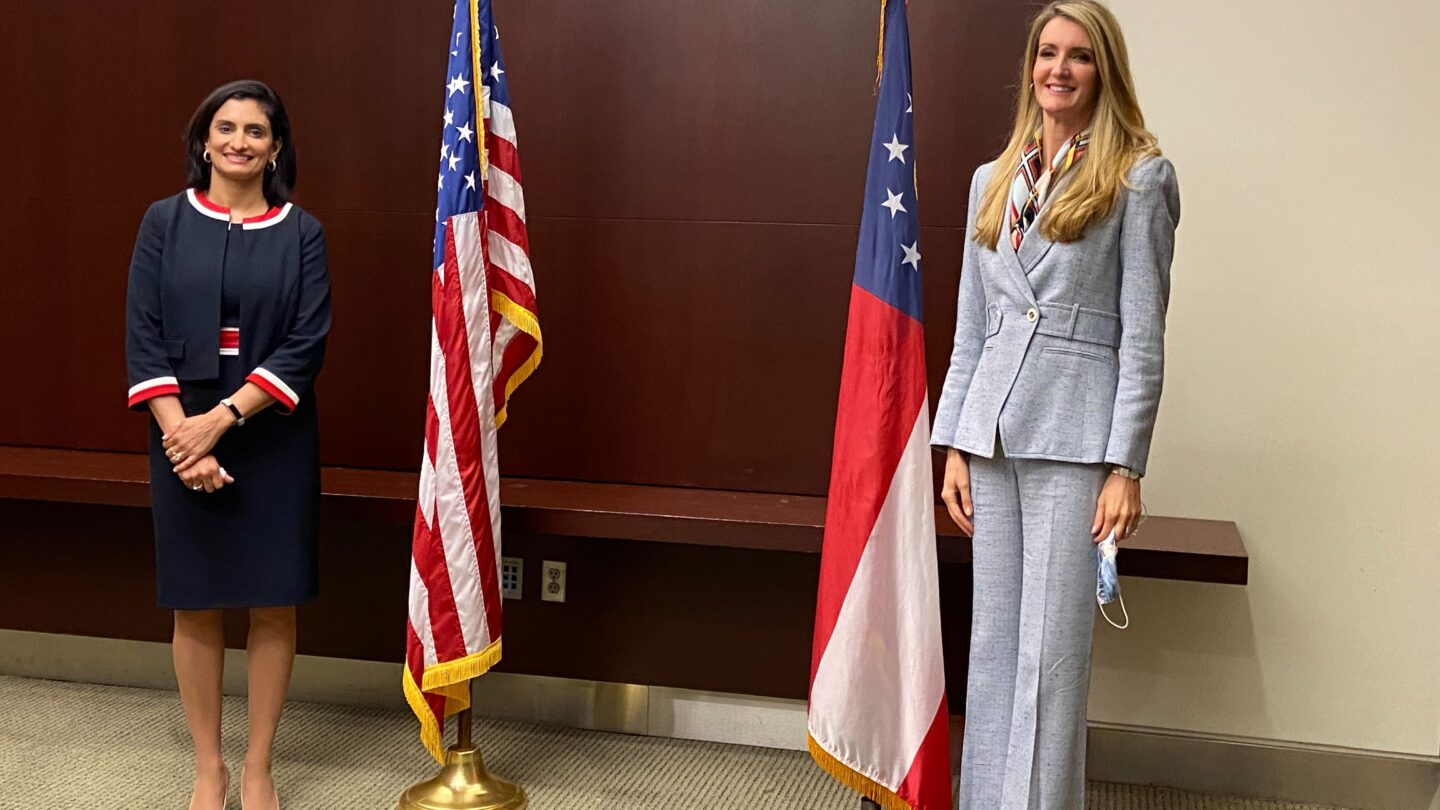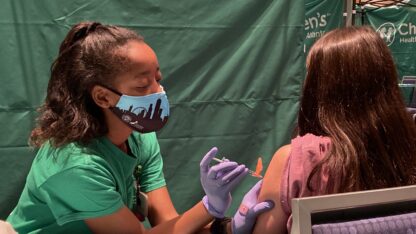Georgia Health Officials Address CMS Administrator, Sen. Loeffler

Administrator of the Centers for Medicare and Medicaid Services Seema Verma, left, and U.S. Sen. Kelly Loeffler heard from Georgia health care leaders at a roundtable Monday.
At a roundtable in Atlanta on Monday, Seema Verma, Centers for Medicare and Medicaid Services administrator, and U.S. Sen. Kelly Loeffler heard from health care leaders in Georgia about the state of the pandemic on the ground.
Hospital executives urged the federal officials to keep them in mind financially as more federal relief is considered, since they’re seeing higher coronavirus numbers than they ever have.
Jonathan Lewin, CEO of Emory Healthcare, said that his system has racked up $15 million in charges for uninsured COVID-19 care that they’ve only seen “a little bit” of which reimbursed.
“Anything we can get is important because the financial burden, especially in hot spots, has been really tremendous on health care systems and hospitals,” he said.
Grady Health System Chief Executive John Haupert said that while hospitals have already received federal relief, they do need more to weather this financially, particularly as numbers have risen. He pointed out that the area’s biggest hospitals have seen a more than 300% increase in COVID-19 patients than a month ago.
“Our question, which we can’t get answered, is how high is high as far as these hospitalized COVID volumes,” he said. Grady, the state’s largest hospital, is at full capacity.
Jayne Morgan, director of innovation at Piedmont Healthcare, also questioned what the “collateral damage” can be of hospitals being on unstable financial footing, for example, furloughed and eliminated health care jobs that are deemed “nonessential.”
Loeffler said that the roughly $1 trillion left in the CARES Act needs to be targeted to “the areas that we missed …areas that are starting to show up as cracks in this response.”
She said future funding needs to focus on children, jobs and the health care industry and its patients.
Morgan also spoke about what she’s noticed — that the “underlying premise of what’s driving the disproportionate negative impact” to African American communities is the “fractured relationship” between the community and the health care industry. She asked Verma to emphasize including those communities in clinical trials, for example, to develop relationships between providers on the front end, before something like a pandemic hits.
Officials spoke to the ongoing challenges in long-term care facilities specifically, which have been under CMS-imposed lockdown since March. Neil Pruitt, the CEO of Pruitt Health, said they’ve had the best success with “cohorting” patients, or sequestering COVID-19-positive residents in certain areas, with staff dedicated to them.
Pruitt said staffing is a tough issue and that without the CARES Act funding, his company wouldn’t “be here.” But he, too, urged future rounds to target facilities in hot spots specifically.
He said as soon as the virus enters a facility, staff stops showing up to work, which has a financial effect.
“The first thing you’ve gotta do is increase pay 25%, and you’re begging people to come in. Without the support of the state of Georgia, we really wouldn’t have survived it,” he said.
Verma said that closing the facilities was “one of the hardest” decisions she’s had to make.
“I think that some of the work that we’re doing in terms of having those point-of-care tests inside the nursing homes, I think that’s going to help because that can help with visitation.”
Verma said that about 1,000 of those tests have been deployed in the country.
Georgia Department of Community Health Commissioner Frank Berry said that the state will begin exploring limited options for long-term care facilities to allow for group dining and some social activity at facilities that have had consistently low numbers.
“We have to figure out how to live with this virus and do it in a safe way,” Verma said. “As we’re thinking about this, from my perspective, this virus is going to be here for a while, and while we’re hopeful for a vaccine … we need to think about how we coexist. The precautions that we’re taking in terms of masking, in terms of social distancing, but also about how we keep our economy open is extremely important.”








